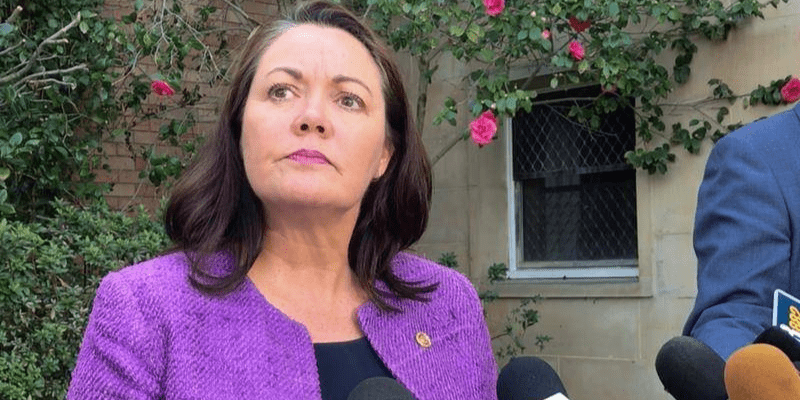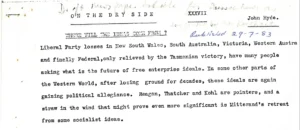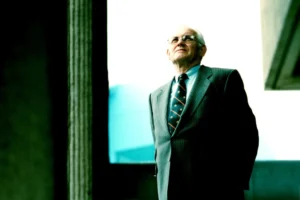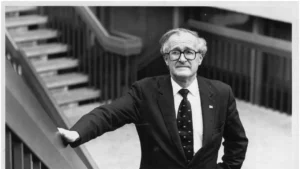The Liberal Party lost 18 of their 31 seats following the 2017 State Election after a decade of unsustainable public sector growth and wastage. Granted, whilst in power, the Liberals saw iron ore prices fall over 60 percent, and the state’s GST share drop as low of 30 cents to the Dollar. But the Barnett government will still be remembered as one who emerged from a once-in-a-generation mining boom with $32-billion of state debt, which will burden the state’s taxpayers for generations to come.
The Liberals looked to rebound from Barnett’s legacy of waste and superfluous spending by appointing Dr Mike Nahan as opposition leader. As Leader of the Opposition, he could have shaped some of the micro-economic reform and economic liberalisation Western Australia desperately requires. However, Nahan stepped down from party leadership in June this year, leaving an already weak Liberal Opposition in a state of disarray.
Liza Harvey was elected unopposed as the new Opposition Leader following Nahan’s resignation. Harvey, who has never held an economic portfolio, did not take long to exhibit a distinct lack of policy-making rigour following her appointment.
In some sort of erroneous attempt to champion small business, Harvey has withdrawn the previous Liberal policy to deregulate shopping hours. She argues that:
“The way the economy is at the moment, my concern is small business. And small business needs to sustain itself and try and get through difficult periods.”
What makes this particularly alarming is Harvey’s admission that she is a small business owner herself. It’s a case of concentrated benefits and dispersed costs which would have prominent public-choice theorists like James Buchanan rolling in their graves.
WA shopping hours are the most regressive in the country. The best way to foster economic growth and allow small business to sustain themselves is to permit them to trade when they choose. This creates more jobs, increases competition and improves consumer choice.
Harvey also back-peddled on the privatisation of the state-owned electricity transmission and distribution network. True, the sale of Western Power should be subject to rigorous financial analysis in order to maximise value for the taxpayer, as it could prove to be an effective mechanism to pay-down some of the State’s onerous debt. Taking the option of selling the state-owned utility completely off the table demonstrates a lack of basic economic rationale and a misunderstanding of the principles which should shape Liberal (read: liberal) policies. Reluctant to back down following the initial stance on Western Power, Harvey asserted that:
“I am not going to go to another election campaign with a policy that I know was deeply unpopular with the community.”
Yet the reason the policy may have been unpopular amongst some constituencies was because its potential benefits were poorly explained. Moreover, Harvey’s stance on Roe 8 is completely at odds with her justification for not supporting the privatisation of Western Power. Roe 8 was one of the most contentious issues of the 2017 election, and the Liberal government’s failure to effectively sell the policy was arguably a large contributor to their emphatic defeat.
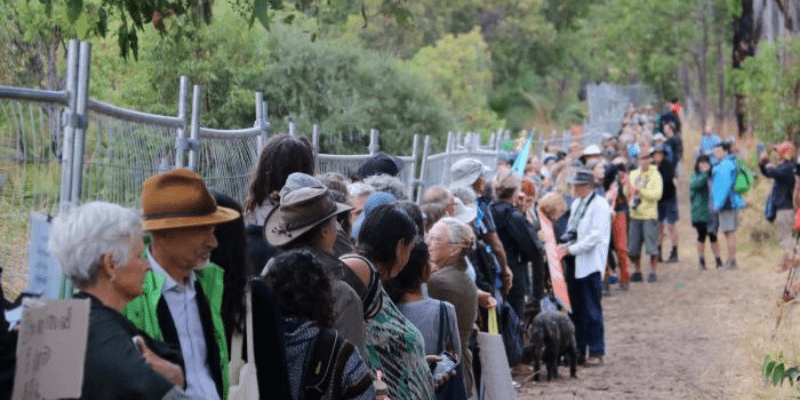
Since then, Labor has established the Westport Taskforce, which will examine appropriateness of the Roe 8 link, along with the development of a wider strategy for the state’s major port and freight network. Roe 8 may likely prove a necessary investment for the state to manage freight congestion, but the project is widely unpopular amongst many voters. Harvey is exposing herself to another embarrassing fallout should the independent Westport Taskforce find the Roe 8 project unnecessary.
Most alarming however, is the new Liberal leader’s call to increase public sector wages. Unsustainable public sector wages growth was a key driver of the budgetary blowout under the Barnett government. Labor’s implementation of caps for public sector salary increases has been effective at reducing recurrent expenditures, reigned in spending and improved the state’s budgetary position. Harvey, however, supports greater rises in public sector pay despite the overwhelming success of the McGowan government’s plan, at a time when the state remains economically vulnerable.
Perhaps the only truly liberal policy which Liza Harvey endorses, is a cut to payroll tax, which would drive jobs and incentivise commercial growth within the state.
As the global economy becomes increasingly uncertain and Chinese economic growth slows, WA must galvanise its financial position and prepare for another global downturn. Some analysts are backing data which argues the state is on the cusp of another mining investment boom (albeit likely smaller than the first), which may insulate the state should the global economy turn sour. But for any sort of mining-boom-buffer to work, the state must pursue a consistent agenda which advocates for micro-economic reform and liberalisation. Now is the time to champion the classical liberal values which promote free enterprise and small government, rather than nonsensical policies fuelled by self-interest.

